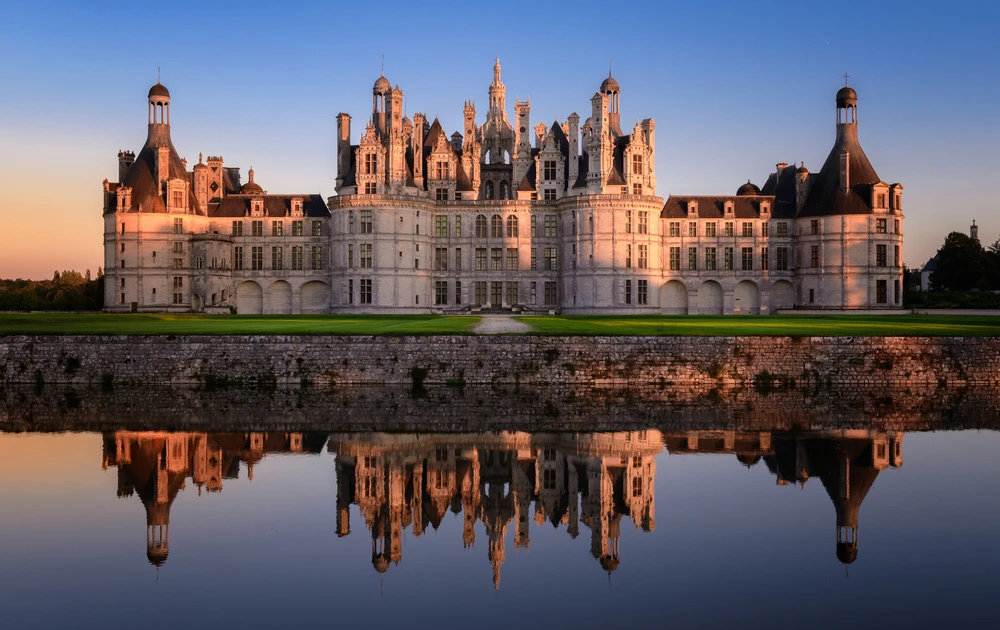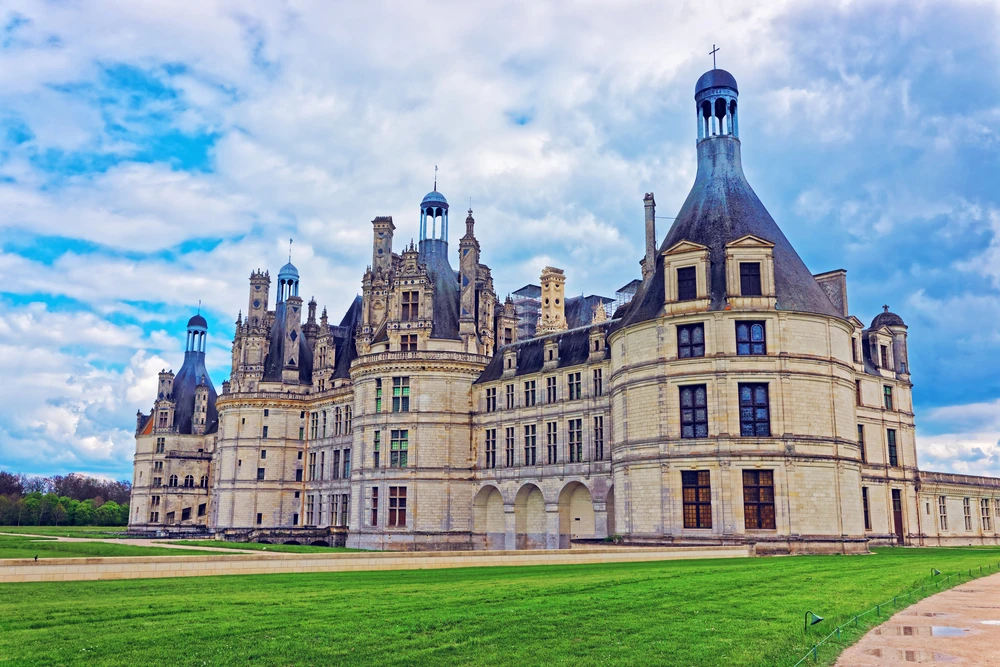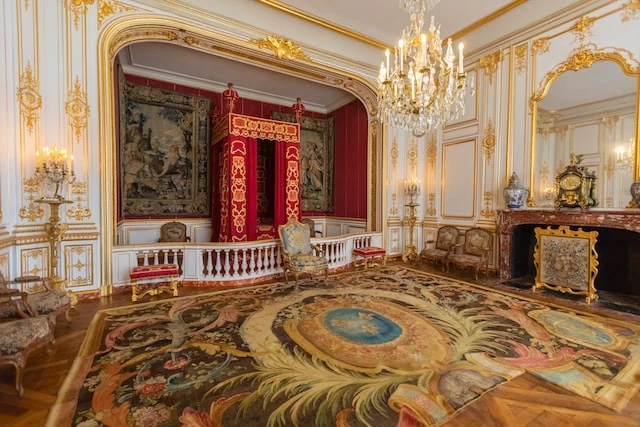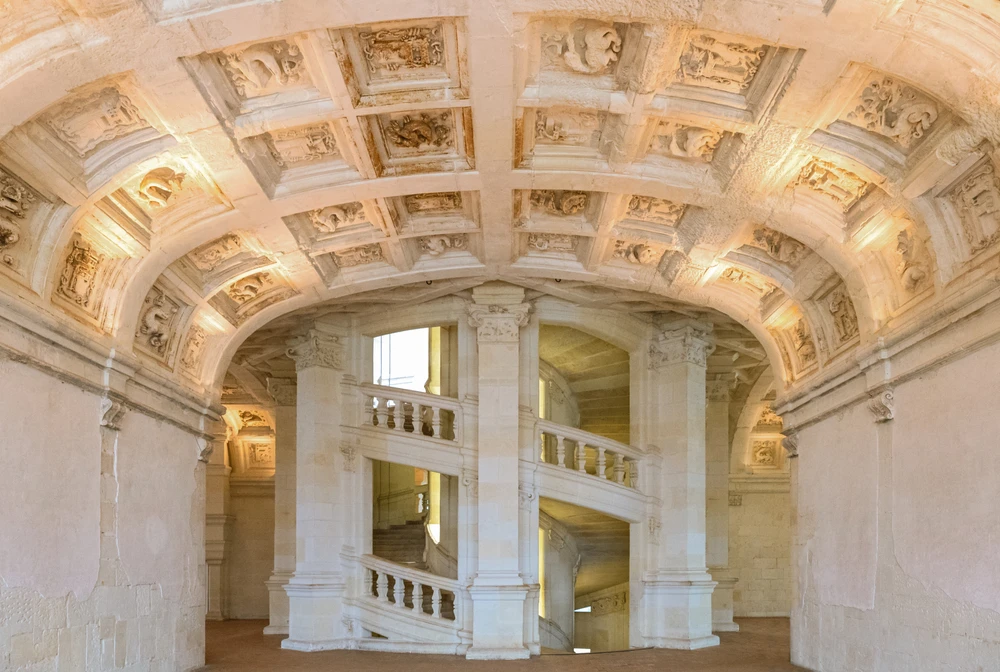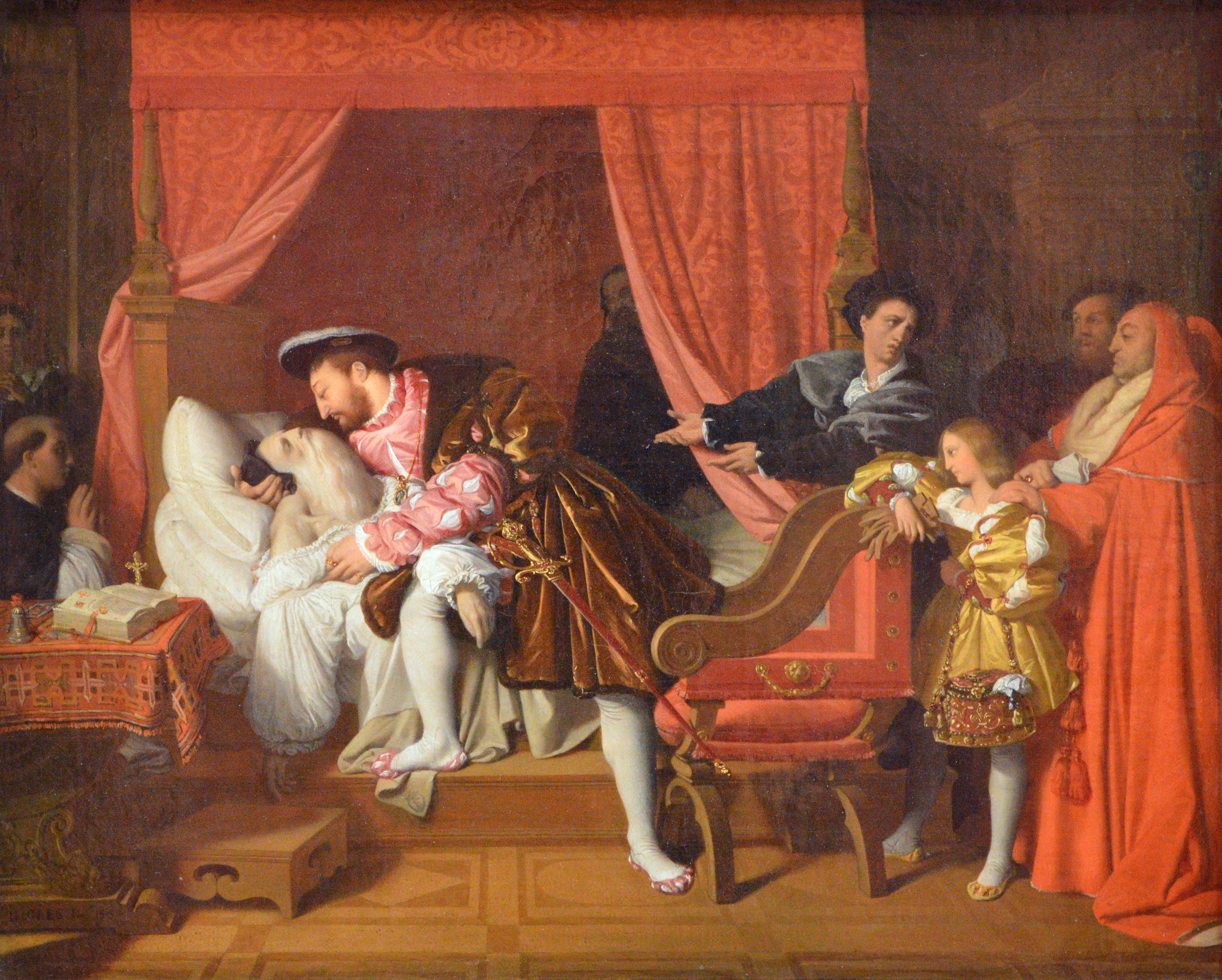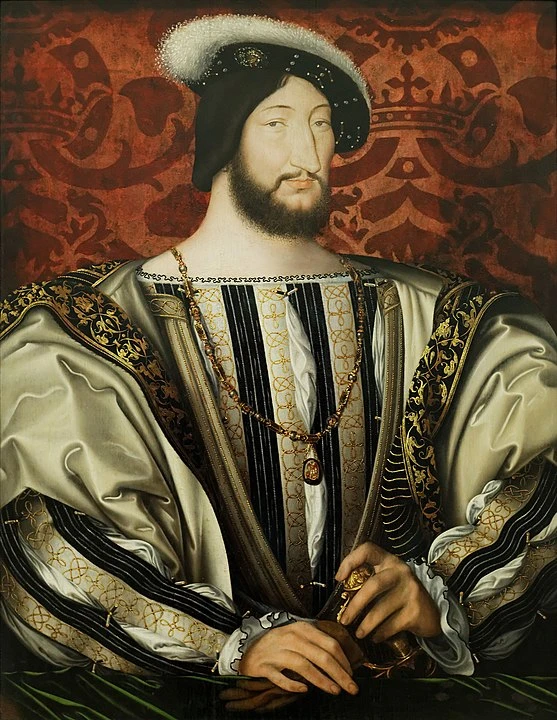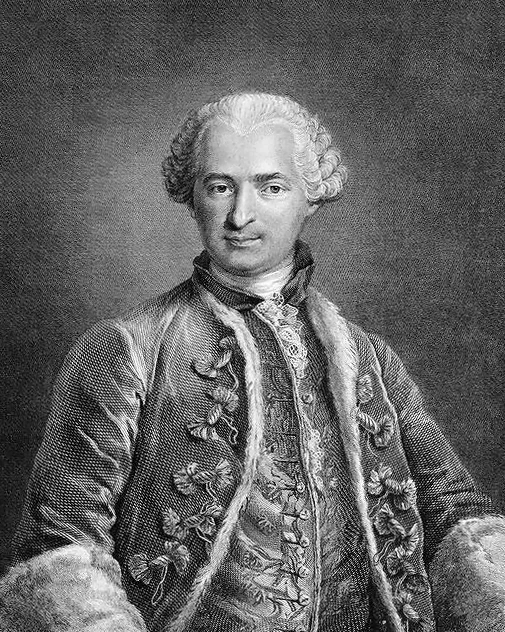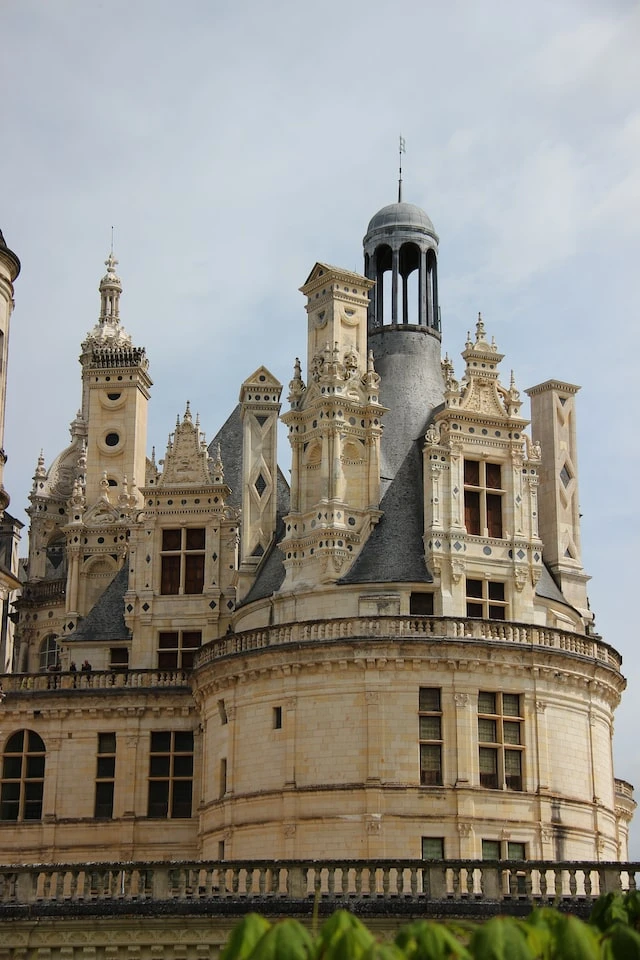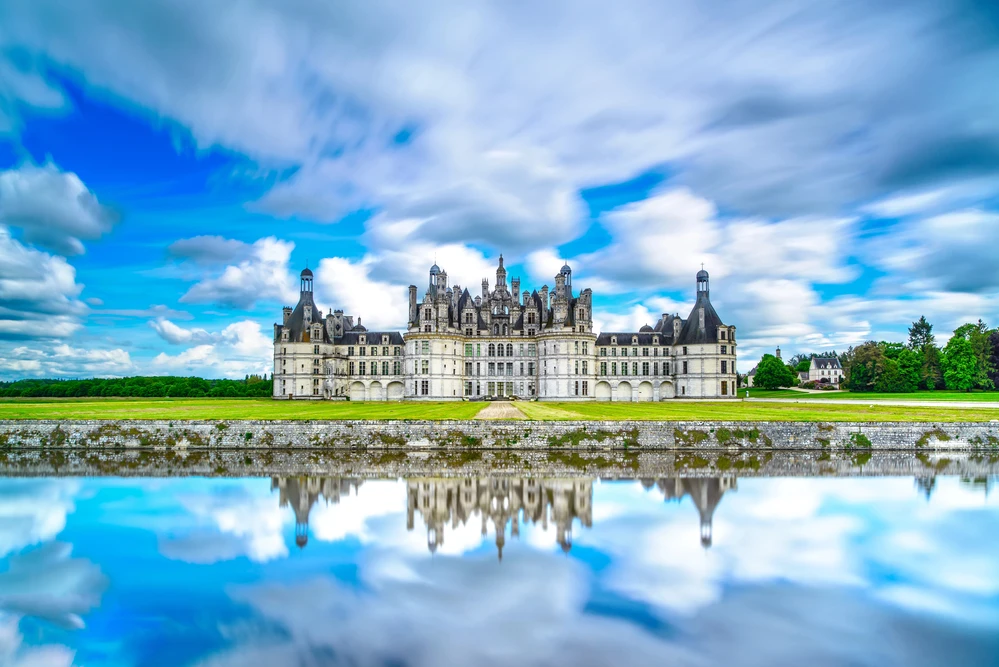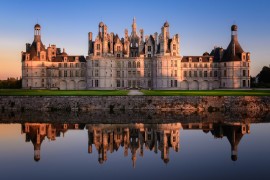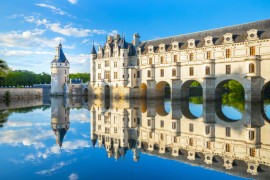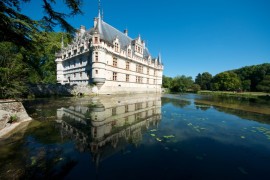Chambord, the castle of all records
Château de Chambord Photo by Tsomchat/Shutterstock
Chambord was the wild dream of François I. Built in 1516 on the ancient feudal motte of the Counts of Blois, it marks the king's victory at Marignan. The estate extends over 50 km² of royal forest, encircled by 32 km of walls, and the château boasts 440 rooms, 365 fireplaces and 83 staircases.
What to see when you visit Château de Chambord?
château de Chambord Photo par Roman Babakin/Shutterstock
Listed as a UNESCO World Heritage Site since 1981, Chambord is the largest and most visited of the Loire castles.
Interior of a room at Château de Chambord / Photo by Dorian Mongel on Unsplash
Its French-style gardens, English garden and potager are among the finest in France.
The vast estate of Chambord Photo by saiko3p/Shutterstock
Inside, the double-revolution staircase is a curiosity attributed to Leonardo da Vinci. You'll also see historic rooms and the bedroom of Louis XIV, but many rooms remain deliberately empty: châteaux were only furnished when the king was staying there.
Leonardo da Vinci's staircase and the genius of the Renaissance
The double spiral staircase at Château de Chambord Photo by Gimas/Shutterstock
The double-revolution staircase is the emblem of Chambord. It ensures that those going up never cross paths with those coming down. Leonardo da Vinci, who lived at Le Clos-Lucé, is said to have inspired its design.
François 1er receives Leonardo da Vinci's last breaths / By Jean-Auguste-Dominique IngresMontauban, 1780 - Paris, 1867
It was at Le Clos-Lucé that Léonard died in 1519 in the arms of François I, sealing the friendship between the king and the Florentine genius.
Francis I, a king out of all proportion
François I circa 1530 (by Jean Clouet, oil on canvas, 96 × 74 cm, Paris, Musée du Louvre).
François I stood nearly 1.98 m tall, making him the tallest king of France. Victorious at the Camp du Drap d'Or against Henry VIII, he epitomized French power. Yet he only stayed 40 days at Chambord in his 32-year reign. The château was more a symbol than a residence.
Chambord through the centuries
The Count of Saint Germain / 18th century engraving
Under Louis XIV, the architect Hardouin-Mansart modernized Chambord. In the XVIIIᵉ century, the mysterious comte de Saint-Germain, alchemist and adventurer, lived there.
The Count of Chambord in the 1840s by Adeodata Malatesta.
Devastated during the Revolution, Chambord was donated to the comte de Chambord in the XIXᵉ century. In the XXᵉ century, it became refuge for the Louvre: the Joconde was hidden there during the Second World War.
The Chambord estate: park, forests and gardens
Chambord Castle Photo by Ralf Gosch/Shutterstock
With over 5,000 hectares, the domaine de Chambord is the largest enclosed park in Europe. Here, you can explore formal gardens, game-filled forests and footpaths. Deer, wild boar and migratory birds populate this unique setting.
Château de Chambord / Tower / Photo by Shalev Cohen on Unsplash
Château de Chambord opening hours, prices and access (2024)
The estate is open all year round except January 1, November 28 and December 25.
-
Hours: 9am-5pm or 9am-6pm depending on the season.
-
Adult price: €16 (château + gardens).
-
Free for under-26s EU nationals.
-
Parkings: €4 to €6 depending on distance from the castle.
-
Guided tours: Histopad (€5), guide (€7).
Access: Chambord is 2 h from Paris by car, 50 minutes from Tours or Orléans. Shuttle buses leave from Blois train station.
Tips for a successful visit to Chambord
Plan at least half a day for Chambord.Arrive early to avoid the crowds or in the late afternoon to enjoy the sunset over the rooftops. Remember to book your tickets online and wear comfortable shoes: everything is huge at Chambord.
Le château de Chambord : image chosen by monsieur de France : StevanZZ via dépositphotos
FAQ about visiting Château de Chambord
How long does it take to visit Chambord?
Ask for 3-4 hours to see the château, gardens and enjoy the park.
Is Château de Chambord open all year round?
Yes, with the exception of January 1, December 25 and November 28.
What to see on your first visit?
The double-revolution staircase, the royal apartments, the panoramic terraces and the French-style gardens.
Can I visit the park for free?
Some of the grounds are open to the public, but admission to the château and gardens is subject to a fee.
Is Chambord child-friendly?
Yes, with trail games and interactive tours designed for families.
Is the site accessible to people with reduced mobility?
Yes, special facilities and services provide access to the main parts of the castle.
Can we eat there?
Yes, several restaurant areas and picnic areas are available on the estate.
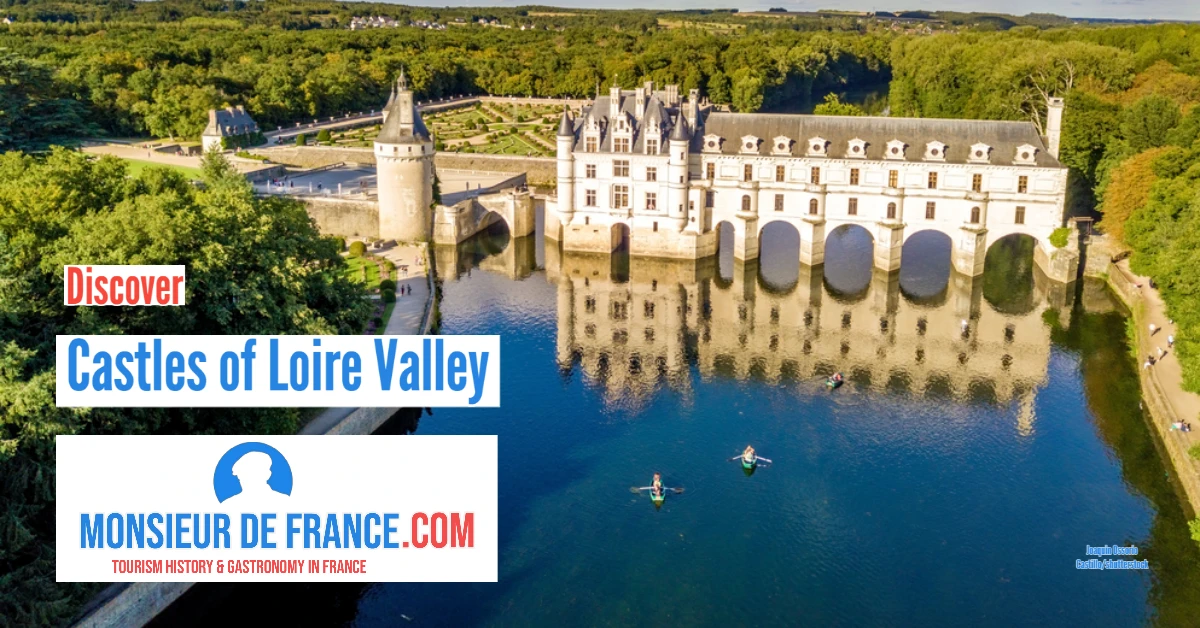
Links and Geo Info
GPS address :
chateau : 41 250 Chambord
Latitude : 47.616211
Longitude : 1.516793
The car:
Chambord is located in the department of Loir-et-cher. It is less than 2 hours from Paris to the South, a little less than 50 minutes from Tours or Orleans and 3 hours from Nantes,
The train
There is no train station but there are shuttles from the station of Blois
The official website
It is complete and very well done. Browse the official website of the Domaine de Chambord before going there.

